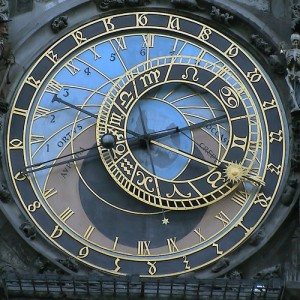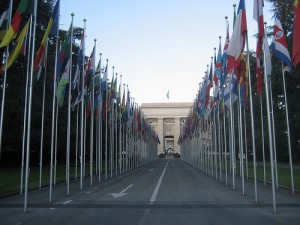This year is special for many reasons. One reason being that it has an extra day. But did you know that it will actually be 366 days plus one second longer? We have all heard of leap years, but have you heard of the leap second?
For about the past 1000 years, the rotation rate of the Earth has been slowing down. This has made our day of 24 hours, or 86 400 seconds, about 0.002 seconds longer. Over the course of a year, this adds about 1 second. Therefore, a second (the leap second) is added to the Coordinated Universal Time approximately every year. This maintains its time within 0.9 seconds of the timescale of the rotation of the Earth, also known as Universal Time. The rotation of the Earth can vary, which means that the leap second it not added at the same time every year, nor is it added every single year. The last leap second was added in 2008, the next one will be added June 30th this year.
Controversy
Thursday, January 19, 2012, a United Nations meeting was held on international telecommunications. At this meeting a recommendation was supposed to be made to keep or abolish the leap second. However, with the delegates not being able to come to a consensus, the subject was put on hold until 2015.
The United States is the main advocate for eliminating the leap second, concerned about the cost and the potential havoc it could wreak. Satellite navigation systems rely on the precise synchronization of time for communications. When the leap second is added, these communications could be disrupted. Computer networks could also have a hard time adding an extra second to their clock. If the second is added inconsistently across the world, potential disasters could occur in air traffic, financial trading markets, and cell phone networks.
On the other hand, countries like Britain, China, and Canada want to keep the leap second. They argue that in the 40 years that leap seconds have been added, there have been no problems or disasters. The elimination of the leap second would stop our day from being in sync with the rotation of the Earth and the Sun. Also, thousands of years from now it could be noon on the clock, but the sun indicates that it is dawn. The advocates for the leap second propose that the elimination of the leap second could cause even more difficulties. One hundred or so years down the line, a leap minute may have to be introduced and this could cause more problems than the leap second.
For now, we will continue to introduce the leap second every year or so. With the rotation of the Earth and Sun always changing we do not know what the future holds. Will we keep the leap second? Only time will tell.
References:
http://www.bbc.co.uk/news/science-environment-15563170
http://www.nature.com.ezproxy.library.ubc.ca/news/2011/111108/full/479158a.html
http://www.nytimes.com/2012/01/20/science/the-leap-seconds-reprieve.html?ref=science
http://iopscience.iop.org.ezproxy.library.ubc.ca/0026-1394/38/6/6/pdf/0026-1394_38_6_6.pdf



2 responses to “2012 will be even longer than you thought”